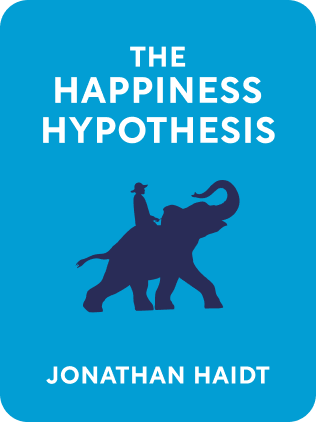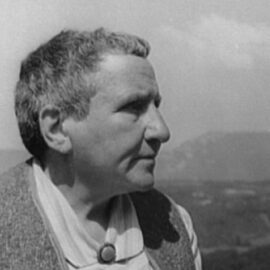

This article is an excerpt from the Shortform book guide to "The Happiness Hypothesis" by Jonathan Haidt. Shortform has the world's best summaries and analyses of books you should be reading.
Like this article? Sign up for a free trial here .
What are the two schools of thought in western culture? How should we decide what is moral and what is morally acceptable? Is there such thing as universal morality?
As western civilization developed, questions around morality emerged. Two schools of thought became the most prominent: deontology (Kantian ethics) and utilitarianism. Both, however, are at odds with how human psychology works.
Keep reading to learn more about the two schools of thought.
The Two Schools of Thought
To understand the two schools of thought, we must first understand how early people thought about emotion. Intellectual developments like the Enlightenment and Scientific Revolution set western civilization on a different course. These movements, building on the foundation laid by the ancient Greeks, placed rationalism and science at the center of the western intellectual tradition.
As a result, western ideas of virtue shifted away from feeling and habit. For the celebrants of reason, emotion was something to be conquered and overcome; the rider had to master the elephant, not merely coordinate with him. But we know that this is not possible and reflects a misunderstanding of how the human mind works. The elephant leads the rider, not the other way around. While we may think that our beliefs and opinions derive from a rational study of the world around us, they are actually the product of our emotions and mental filters.
Because science and reason can be broadly defined as mankind’s quest to find a small set of rules to explain the infinite phenomena of the universe, western thinkers became myopically focused on the search for a single moral rule that could guide proper conduct in all situations at all times. This search led to two primary schools of thought.
Deontology (Kantian Ethics)
The first school of thought is Kantian ethics (also known as deontology). Kantian ethics are based on the ideas of the German philosopher Immanuel Kant. Kant argued that individuals should adhere to a core set of universally applicable moral laws. Anything that was in violation of these laws would be construed as an immoral act.
Kant was most concerned with individual rights and obligations. He argued that individual moral principles should be judged on the basis of whether or not they would make sense as universal principles.
For example, if you plan to pirate movies because it’s inconvenient and burdensome for you to pay for them, would you then be in favor of a universal law that justifies stealing in all situations where paying for something is inconvenient? If you would not (and most people wouldn’t), then you must judge your own conduct as wrong. As an individual, you would have failed in your duty to behave morally. This test is known as the categorical imperative.
The individual is the fundamental unit in Kantian ethics. Conduct is judged based on whether or not the individual has lived up to their societal duty.
Utilitarianism
Utilitarianism, on the other hand, is concerned with outcomes. This school of thought, founded by the English philosopher Jeremy Bentham, claims any action that maximizes human happiness is the morally correct one. Thus, it would be morally correct to kill one person in order to save the lives (and, therefore, increase the happiness) of 10 others.
Utilitarianism, by its nature, is little concerned with individual rights or the respect that people ought to have for one another. People are just instruments for the maximization of total happiness. Thus, actions that would be justified under utilitarianism would frequently violate the categorical imperative of deontology.
The Failure of Moral Reasoning
Both schools of thought, deontology and utilitarianism, however, place little emphasis on character and inner belief.
They are overly concerned with teaching people how to navigate certain moral quandaries or make efficient trade-offs, not with the cultivation of inner virtue.
These attitudes pervaded much of western moral philosophy, teaching people to reason their way into moral conduct. But this approach confuses the rider with the elephant and is thus at odds with how human psychology works. You don’t reason your way toward good morals; instead, you behave morally first, leading you to train yourself to use your powers of reason toward moral ends. The elephant leads the rider; it is more important to calibrate one’s emotional desires towards virtuous ends.
Moreover, human beings are shaped by the time, place, and culture in which they live. What was moral to someone living in 8th-century France would not be moral to us, and we shouldn’t attempt to create a universal set of morals that can apply at all times and places. Virtue should be context-specific and grounded in cultural traditions.
Freedom From Excess Freedom
Following this discussion of the schools of thought, we should embrace a new concept of morality (or re-embrace an ancient concept of morality) that is more based in group norms. This approach acknowledges the way the human mind actually works and will yield better outcomes for both the individual and society.
We have lost much of our ancient grounding in group or communal morality as we have shifted to a paradigm that places the freedom of the individual as the highest ideal. But too much freedom can be harmful, because it unmoors us from rules, norms, and standards of virtue. Even if we have the freedom to do whatever we please, we lack any coherent moral framework to help us decide what we want to do with our lives. Our overabundance of freedom leaves us rootless and untethered.
A shared community understanding of morality is good; we do not want diversity of morality. After all, if moral differences become merely matters of taste or preference, there is no real morality to speak of.

———End of Preview———
Like what you just read? Read the rest of the world's best book summary and analysis of Jonathan Haidt's "The Happiness Hypothesis" at Shortform .
Here's what you'll find in our full The Happiness Hypothesis summary :
- How your emotions determine how satisfied you are in life
- Why you need to struggle in order to succeed
- How to create your own happiness






